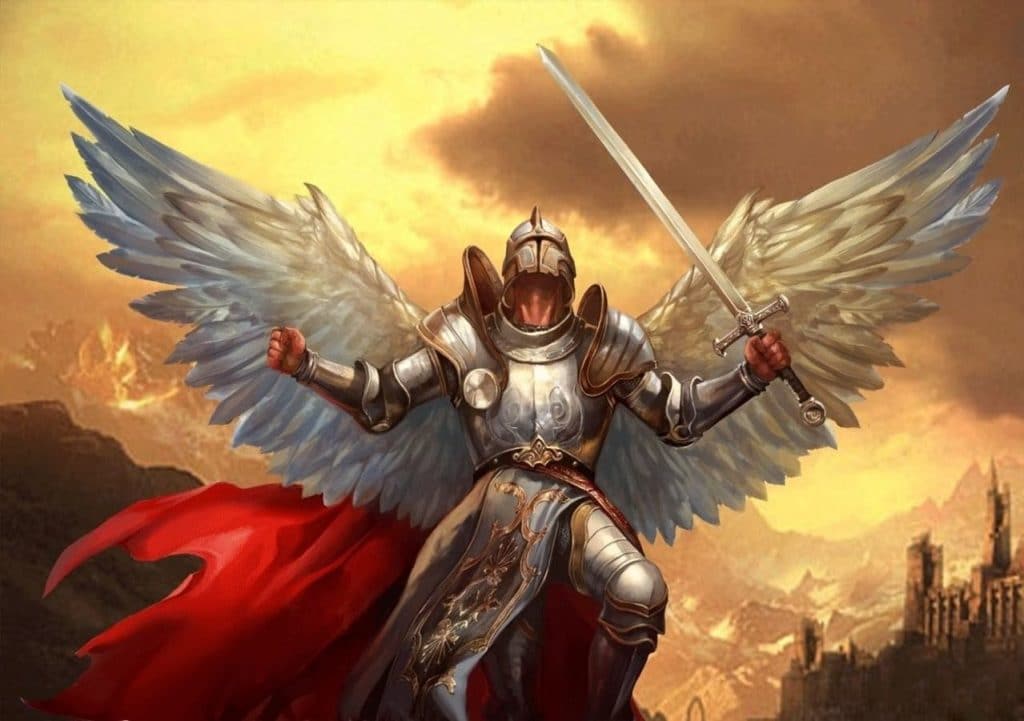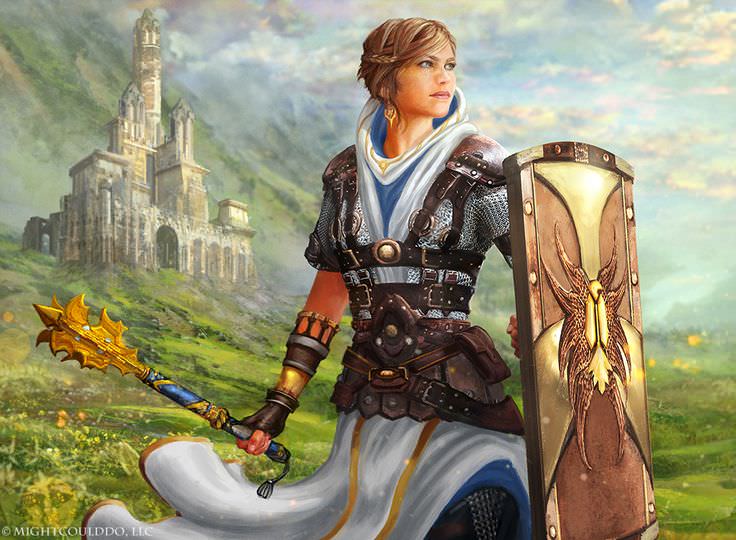The conflict in Dungeons and Dragons is between good and evil. On one side are your clerics and your paladins, while on the other are your orcs, the spidery drow, and the fiendish Tiamat.
Our job as heroes is to vanquish these evil foes, and care nothing of it. Shucks, not even the cleric can spare a few words over their lifeless bodies, as she’s too busy looting their corpse for loose change.
For good has triumphed over evil, meaning all is right in the Forgotten Realms. Let’s adventure again tomorrow!
But what if a player would want to play an evil character? Would that be wrong? And, if not, then why be good at all?
 Is it wrong to play an evil D&D character?
Is it wrong to play an evil D&D character?
Let’s go way back and get philosophical on this one. The question about being good was asked by a character in Plato’s Republic. The character Glaucon has a magic ring that turns him invisible. Glaucon thinks that’s a perfect way to escape potential punishment, so in his mind it wouldn’t be wrong to be self-serving.
Why be virtuous when there are no consequences, thought Glaucon? He was aligned chaotic evil at this point.
But Plato spent the rest of the Republic showing that only a virtuous person is at peace. And for Plato, a good person balances their passions and appetites. Further, Plato argued, morality is tied to other beings and an empathy that causes us to care for their well-being. The question in his mind wasn’t even “What is the right thing to do?” but “What kind of person do I want to be?“
Who knew Plato had something to say about D&D? I guess it turns out that Gary Gygax didn’t just pull D&D’s alignment system out of a bag of holding. It’s been the reigning ethical theory for 2,500 years.

Fine, so Plato argues we should be of good alignment. But what is the big deal if I play an evil character? It’s just a game, pal, so lighten up on this morality stuff. Well, once again, Plato would argue that what you do in a game matters.
For Plato, play was important, as play was where you “play tested” life’s choices and actions, and this thinking was continued with Aristotle, who coined it “virtue ethics.”
The idea was that one becomes virtuous by making choices that develop into habits that in turn form moral character. They’d argue that doing virtuous actions create virtuous character, and doing evil actions creates vicious character.
So apologies to Allen Iverson, but practice matters in being a good person, at least if you are influenced at all by the last two millennia of ethics philosophers.
This comes out in a D&D game in interesting ways, considering that so many RPGs have medieval society as a backdrop. Inequality, slavery, torture, and poor treatment of women were not only tolerated in many medieval societies, they were institutionalized.
Depending on their alignment, a player’s character simply may not be willing to tolerate those evils. Evil or neutral aligned characters who are only self-interested will certainly have an easier time during roleplay than will the altruistic, good-aligned characters.
Let’s consider the paladin we mentioned at the beginning of this article. Maybe he zealously has sworn death to all filthy orcs, and he’s leveled up as a result. But what about the character growth that comes when he is forced to decide whether to slay innocent orc children who will likely grow up to threaten townsfolk?
Our D&D games can benefit from a little moral decision making practice, just as Plato predicted. But maybe this is starting to bug you. That’s understandable, as morality is controversial in the real world. Nobody likes to be preached to, nor do they like limits placed upon them, which is probably one of the reasons that alignment has always been a little controversial in tabletop roleplaying games.

Maybe we don’t want to be Drizzt, who felt deep down that his moral character wasn’t aligned with the treachery, violence, and duplicitousness that lurked all throughout the Underdark. Maybe we simply want the healing spells of the cleric (they benefit the party, after all), yet we don’t want that cleric to feel guilty every time initiative is rolled or a tomb is looted.
Playing an evil D&D character can be fun, and D&D is a game, after all. If you have more fun turning orc children into corpses with a +3 longsword or crisping townsfolk with a fireball spell, then more power and XP for you. The same goes if you like to slaughter innocent gnomes–whatever you like to pretend to do is just fine by me.
It is what you do in this real world that reveals your true alignment. As for me, I allows play good aligned D&D characters. I need all the practice I can get.

